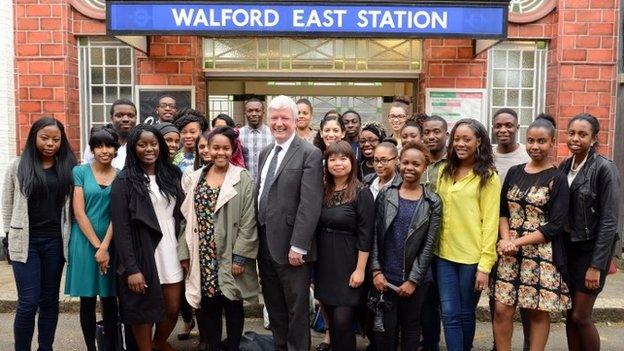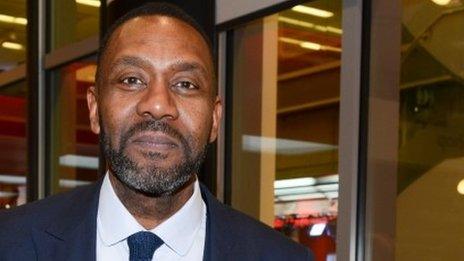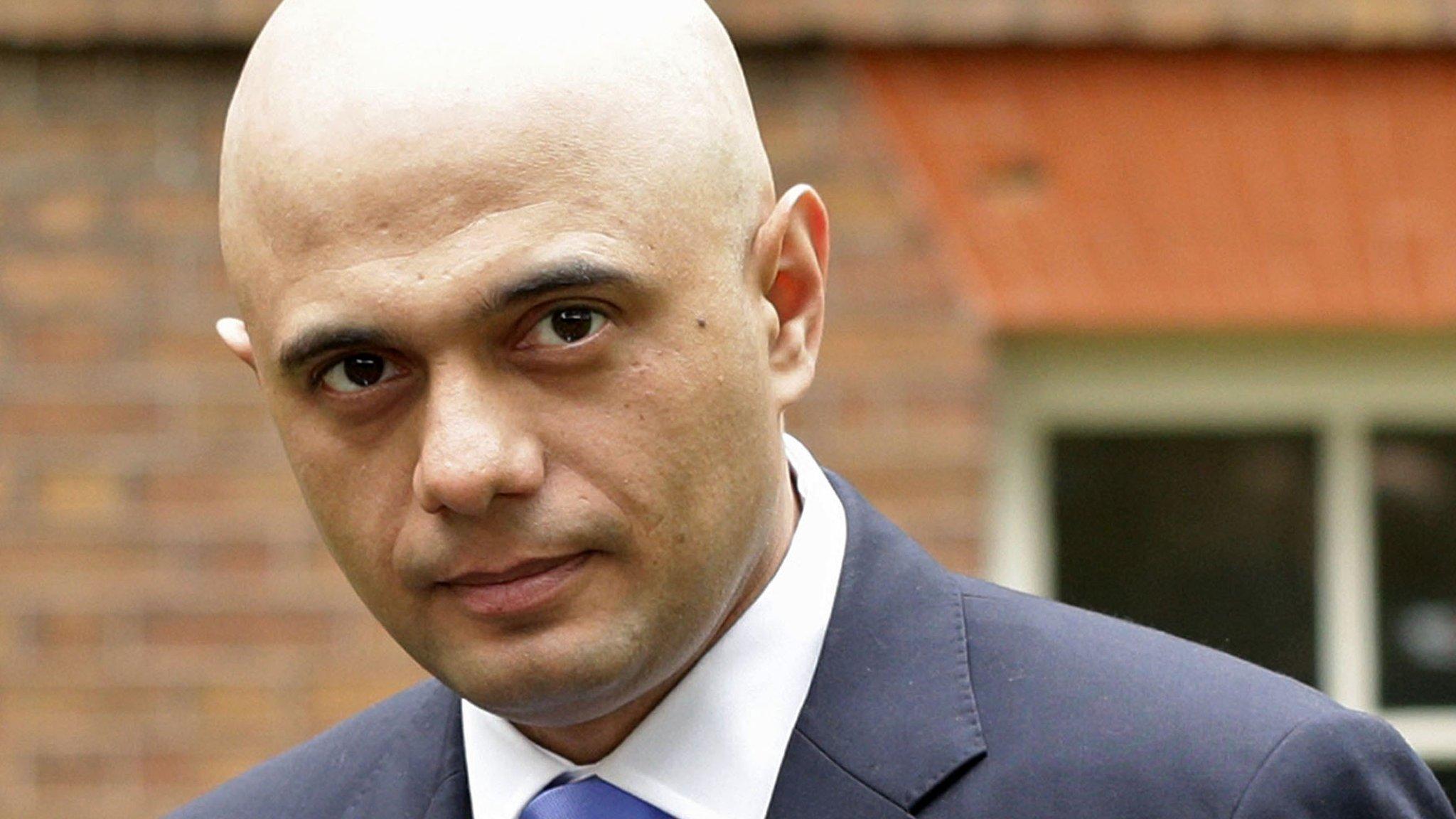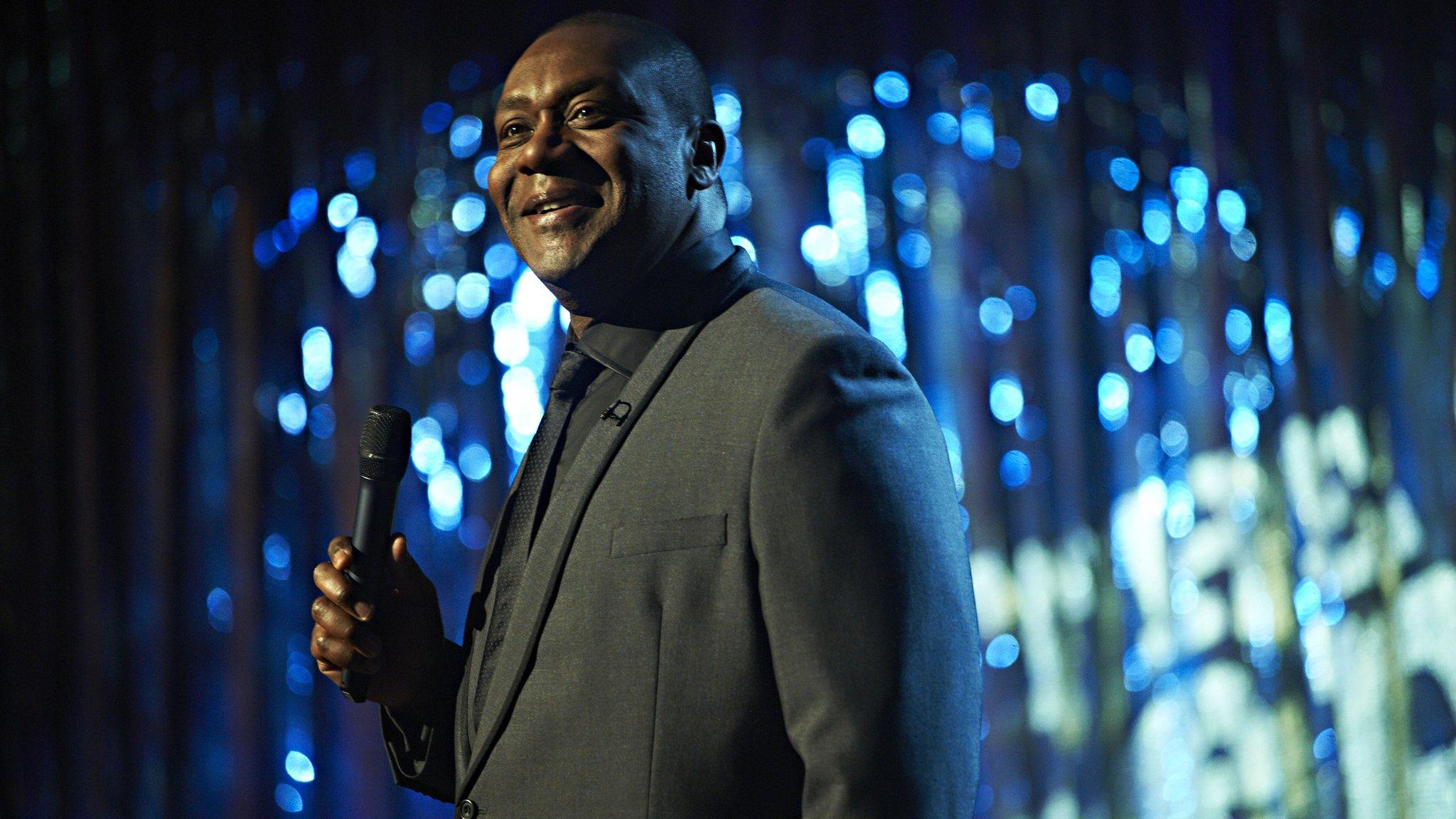BBC pushes for diversity on air
- Published

Black, Asian and minority ethnic representation will have to improve on and off-screen
The BBC has announced plans for greater black, Asian and minority ethnic (BAME) representation on and off air.
"The BBC should be giving talented people a chance wherever they come from," said director general Tony Hall.
The BBC will put £2.1m into a fund intended to help BAME talent, on and off screen, to develop new programmes.
BBC targets call for around one in six people (15%) on-air to be from BAME backgrounds within three years - an increase of nearly 5%.
The 15% target would be across all BBC television output including news, drama, comedy and documentaries.
Lord Hall said BBC News had set local targets in London, Birmingham, Manchester and Leicester to reflect the population.
'All backgrounds'
"I want a new talent-led approach that will help set the pace in the media industry," said Lord Hall, who was speaking to members of Creative Access at the BBC's Elstree Studios.
"The only reason we're here is to make great programmes that people of all backgrounds think are important... and for that we need to employ people that have got ideas," he added.
Simon Albury, chair of the Campaign for Broadcasting Equality, welcomed the BBC announcement, calling it "a huge step forward".
"The BBC has announced a very substantial package of initiatives, which will drive significant and welcome improvement in BAME representation at all levels," he said.
However, he expressed disappointment with the Diversity Creative Talent Fund of £2.1m, saying it was a fraction of the BBC content budget "of £1,789.1m".

Lenny Henry has been vocal on the need to improve diversity in the media
Friday's announcement also included a series of targets for staff representation off-air, to be achieved by 2017.
The BBC said it would launch an Assistant Commissioner Development Programme to train six Commissioners of the Future to work in comedy, drama, factual, daytime and children's programming.
It will include a 12-month paid internship, aimed at bringing in young people from diverse backgrounds.
But Lord Hall told reporters: "We're not guaranteeing a job at the end of it.
"I'm certain they will get a job either at the BBC or elsewhere - but what I'm saying is we want to make a difference here to finding great talent and backing them.
"I've seen it work in the arts. If it doesn't then we'll look for other things."
Incorporated into the 2017 targets is also a new senior leadership development programme providing six people from BAME backgrounds with experience working at the top level of the BBC - including a placement with Lord Hall himself.
"It's going to be very competitive - it'll be open to people inside and outside the BBC and we're hoping to have a broad range of people," he said.
The BBC said it hopes BAME representation at a senior level will almost double over six years, increasing from the current 8.3% to 15% by 2020.
The corporation will also take on 20 graduate trainees from BAME backgrounds, as part of its work with the Creative Access Programme - a charitable organisation which seeks to improve the representation of the ethnic minorities in the media.
'Tough-minded'
The BBC is also bringing together a group of experts, including Baroness Tanni Grey-Thompson, comedian Lenny Henry, Asian Network presenter Nihal and Lady Benjamin to form an Independent Diversity Action Group, chaired by Lord Hall.
"I think the group will be tough-minded," said Lord Hall. "But it's good to have people who are there to support you, but also say you can do better here."
Delivering a lecture to Bafta in March, Lenny Henry said funds should be set aside to boost the presence of BAME people in the broadcasting industry.
He put the presence of those from BAME backgrounds in the creative industry at 5.4%.
He described this as "an appalling percentage because the majority of our industry is based around London where the black and Asian population is 40%."
He added that the situation behind the camera was also "patchy".
- Published6 June 2014

- Published18 March 2014
